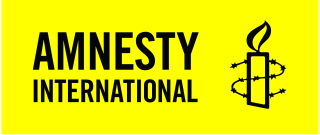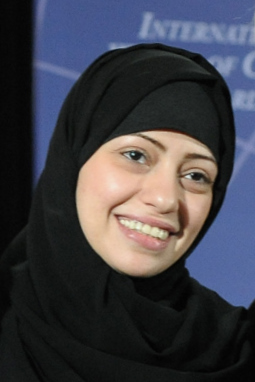
Freedom of information is freedom of a person or people to publish and consume information. Access to information is the ability for an individual to seek, receive and impart information effectively. This sometimes includes "scientific, indigenous, and traditional knowledge; freedom of information, building of open knowledge resources, including open Internet and open standards, and open access and availability of data; preservation of digital heritage; respect for cultural and linguistic diversity, such as fostering access to local content in accessible languages; quality education for all, including lifelong and e-learning; diffusion of new media and information literacy and skills, and social inclusion online, including addressing inequalities based on skills, education, gender, age, race, ethnicity, and accessibility by those with disabilities; and the development of connectivity and affordable ICTs, including mobile, the Internet, and broadband infrastructures".
Gender equality, also known as sexual equality or equality of the sexes, is the state of equal ease of access to resources and opportunities regardless of gender, including economic participation and decision-making; and the state of valuing different behaviors, aspirations and needs equally, regardless of gender.

The Open Rights Group (ORG) is a UK-based organisation that works to preserve digital rights and freedoms by campaigning on digital rights issues and by fostering a community of grassroots activists. It campaigns on numerous issues including mass surveillance, internet filtering and censorship, and intellectual property rights.

Violence against women (VAW), also known as gender-based violence and sexual and gender-based violence (SGBV), are violent acts primarily or exclusively committed by men or boys against women or girls. Such violence is often considered a form of hate crime, committed against women or girls specifically because they are female, and can take many forms.
According to human rights organisations, the government of the UAE violates a number of fundamental human rights. The UAE does not have democratically elected institutions and citizens do not have the right to change their government or to form political parties. Activists and academics who criticize the regime are detained and imprisoned, and their families are often harassed by the state security apparatus. There are reports of forced disappearances in the UAE; many foreign nationals and Emirati citizens have been abducted by the UAE government and illegally detained and tortured in undisclosed locations. In numerous instances, the UAE government has tortured people in custody , and has denied their citizens the right to a speedy trial and access to counsel during official investigations.
The Equality and Human Rights Commission (EHRC) is a non-departmental public body in Great Britain, established by the Equality Act 2006 with effect from 1 October 2007. The Commission has responsibility for the promotion and enforcement of equality and non-discrimination laws in England, Scotland and Wales. It took over the responsibilities of the Commission for Racial Equality, the Equal Opportunities Commission and the Disability Rights Commission. The EHRC also has responsibility for other aspects of equality law: age, sexual orientation and religion or belief. A national human rights institution, it seeks to promote and protect human rights throughout Great Britain.

Women's rights in Saudi Arabia are a topic of concern and controversy internationally. Law and public policy have undergone significant reforms since 2017, following a period of religious fundamentalist dominance that began in 1979.
According to Human Rights Watch, there is substantial discrimination against women in the United Arab Emirates. The status of women has improved over the years. UAE performs better on metrics of gender equality than many other states in the Gulf region, and it has been making reforms to protect women's rights and empower women in different sectors. Critics describe some of these reforms as window dressing.

Amnesty International is an international non-governmental organization focused on human rights, with its headquarters in the United Kingdom. The organization says it has more than ten million members and supporters around the world. The stated mission of the organization is to campaign for "a world in which every person enjoys all of the human rights enshrined in the Universal Declaration of Human Rights and other international human rights instruments." The organization has played a notable role on human rights issues due to its frequent citation in media and by world leaders.

Prison rape or jail rape is sexual assault of people while they are incarcerated. The phrase is commonly used to describe rape of inmates by other inmates, or to describe rape of inmates by staff.

Nasrin Sotoudeh is a human rights lawyer in Iran. She has represented imprisoned Iranian opposition activists and politicians following the disputed June 2009 Iranian presidential elections and prisoners sentenced to death for crimes committed when they were minors. Her clients have included journalist Isa Saharkhiz, Nobel Peace Prize laureate Shirin Ebadi, and Heshmat Tabarzadi. She has also represented women arrested for appearing in public without a hijab, which is a punishable offense in Iran. Nasrin Sotoudeh was the subject of Nasrin, a 2020 documentary filmed in secret in Iran about Sotoudeh's "ongoing battles for the rights of women, children and minorities." In 2021, she was named as of Time's 100 Most Influential People in the World.

Samar bint Muhammad Badawi is a Saudi Arabian human rights activist. She and her father filed court cases against each other. Badawi's father accused her of disobedience under the Saudi Arabian male guardianship system and she charged her father with adhl—"making it hard or impossible for a person, especially a woman, to have what she wants, or what's rightfully hers; e.g, her right to marry" according to Islamic jurisprudence—for refusing to allow her to marry. After Badawi missed several trial dates relating to the charge, an arrest warrant was issued for her, and Badawi was imprisoned on 4 April 2010. In July 2010, Jeddah General Court ruled in Samar Badawi's favor, and she was released on 25 October 2010, and her guardianship was transferred to an uncle. There had been a local and international support campaign for her release. The Saudi NGO Human Rights First Society described Badawi's imprisonment as "outrageous illegal detention".

Razan Ghazzawi is a Syrian-American blogger, campaigner and activist and currently a PhD researcher at the University of Sussex. She has been highly involved in the events during the Syrian Civil War, and has been particularly outspoken on activists' arrests and the violations of human rights committed by the Bashar al-Assad government. She was called "iconic blogger and leading activist" by The Telegraph. Jillian York wrote that Ghazzawi was "one of [her] heroes."
Black Twitter is an internet community largely consisting of African-American users on the social network Twitter focused on issues of interest to the black community in the United States. Feminista Jones described it in Salon as "a collective of active, primarily African-American Twitter users who have created a virtual community proving adept at bringing about a wide range of sociopolitical changes." A similar Black Twitter community grew in South Africa in the early 2010s.

Ruth Lauren Smeeth, Baroness Anderson of Stoke-on-Trent is a British Labour Party politician who was the Member of Parliament (MP) for Stoke-on-Trent North from 2015 until 2019. Since 2022 she has been a member of the House of Lords.

Katherine Roberts Maher is an American former chief executive officer and executive director of the Wikimedia Foundation.

Julienne Lusenge is a Congolese human rights activist recognized for advocating for survivors of wartime sexual violence. She is co-founder and President of Female Solidarity for Integrated Peace and Development (SOFEPADI) and director of the Congolese Women's Fund (FFC). She is the recipient of the 2018 Women’s International Rights Award from the Geneva Summit for Human Rights and Democracy and the 2016 Ginetta Sagan Award from Amnesty International. She received the Human Rights Award from the Embassy of France and named a Knight of the Legion of Honour by the French Government. She was awarded an International Women of Courage Award in 2021. On October 10, 2021, she was awarded the Aurora Prize for Awakening Humanity, at the Armenian Monastery on the island of San Lazzaro in Venice, Italy.

Nanjira Sambuli is a Kenyan researcher, writer, policy analyst and strategist interested in and working on understanding the unfolding, gendered impacts of ICT adoption on governance, media, entrepreneurship and culture.
Seyi Akiwowo is a British-Nigerian women's rights activist and campaigner. She is the founder and director of Glitch, a non-profit campaigning to end online abuse. Akiwowo was selected as the Amnesty International Human Rights Defender in 2018 and the Digital Leader of the Year in 2019. She is one of the Evening Standard's 2019 list of most influential people and appeared in Marie Claire in September 2019 as a Future Shaper.

Renata Ávila Pinto is a Guatemalan lawyer and activist specializing in technology and intellectual property. She is a spokesperson and part of the team that defends Julian Assange and WikiLeaks, under the direction of Baltasar Garzón. Since October 2021 she has been the CEO of the UK-based Open Knowledge Foundation.















